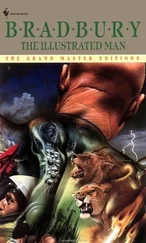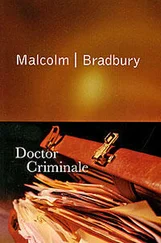Malcolm Bradbury - The History Man
Здесь есть возможность читать онлайн «Malcolm Bradbury - The History Man» весь текст электронной книги совершенно бесплатно (целиком полную версию без сокращений). В некоторых случаях можно слушать аудио, скачать через торрент в формате fb2 и присутствует краткое содержание. Жанр: Современная проза, на английском языке. Описание произведения, (предисловие) а так же отзывы посетителей доступны на портале библиотеки ЛибКат.
- Название:The History Man
- Автор:
- Жанр:
- Год:неизвестен
- ISBN:нет данных
- Рейтинг книги:3 / 5. Голосов: 1
-
Избранное:Добавить в избранное
- Отзывы:
-
Ваша оценка:
- 60
- 1
- 2
- 3
- 4
- 5
The History Man: краткое содержание, описание и аннотация
Предлагаем к чтению аннотацию, описание, краткое содержание или предисловие (зависит от того, что написал сам автор книги «The History Man»). Если вы не нашли необходимую информацию о книге — напишите в комментариях, мы постараемся отыскать её.
The History Man — читать онлайн бесплатно полную книгу (весь текст) целиком
Ниже представлен текст книги, разбитый по страницам. Система сохранения места последней прочитанной страницы, позволяет с удобством читать онлайн бесплатно книгу «The History Man», без необходимости каждый раз заново искать на чём Вы остановились. Поставьте закладку, и сможете в любой момент перейти на страницу, на которой закончили чтение.
Интервал:
Закладка:
'And what have I been busy doing?' asks Howard. 'Well, you know that, Howard,' says Marvin, 'I hardly like to repeat these things.'
'I should like to know what Mr Carmody believes he's found out about me,' says Howard. 'Since you think they're matters important enough for the Vice-Chancellor to consider.'
'He claims to have a record of promiscuous sexual intimacy,' says Marvin. 'A rather circumstantial record.'
'Can I have some details of this record?' asks Howard. 'Well, it begins on Monday,' says Marvin, 'You had I gather, a party; in the late evening you were in your downstairs room, and according to Carmody an intimacy took place, on the floor, with Miss Phee.'
'Did I?' asks Howard. 'On Tuesday you had recourse in a different direction, to the flat of one of our mutual colleagues. It was an upstairs flat, but with diaphanous curtains, and again Carmody surmised intimacy.'
'Is that a matter for the Vice-Chancellor?' asks Howard. 'I should hardly think so,' says Marvin, 'but the evening continues. You returned home, your wife was out, and Miss Phee was in.'
'Did you know Mrs Beamish was also there?' asks Howard. 'I gather there was a significant time-lapse between your arrival home and Mrs Beamish's coming,' says Marvin. 'It was largely occupied with an extended telephone conversation with you,' says Howard. 'I shall ask you to testify to that if necessary.'
'Ah, what a web it is,' says Marvin. 'Of course I shall tell all I know.'
'And on Wednesday?'
'On Wednesday you stayed in,' says Marvin, 'I gather a fruitless evening for the outside observer.'
'I must have been recouping my strength,' says Howard. 'Is there more?'
'On Thursday you had dinner in a small French restaurant with Carmody's own adviser. The lady was present, so that we were all able to agree on the innocence of that occasion.'
'The evidence is beginning to look rather thin, isn't it?' asks Howard. 'Ah,' says Marvin, 'until the weekend. I gather your wife was away for the weekend, and Miss Phee came and stayed in the house over this period, and is presumably still there. According to Mr Carmody, it's been rather a lively weekend. Indoors and out, so to speak.'
'Did Mr Carmody also tell you that there were two children there, most of the time, and that Miss Phee was there to look after them?'
'He claimed they were no barrier,' says Marvin.
'Well,' says Howard, 'thank you for telling me this. I think it completely clinches my case. I told you the man was a blackmailer. You failed to be convinced. Now he's exposed himself totally.'
'He's certainly shown himself as vilely unpleasant,' says Marvin. 'And of course it will save time if he goes to see the Vice-Chancellor. After all, he's the person to deal with this sort of illegality. Unless, of course, it's the courts. I'm only surprised, and I expect the Vice-Chancellor will be, that you've treated him as if he had some sort of case.'
'Howard,' says Marvin, 'I should like you to understand I have not taken Carmody's side. But I did warn you not to let this become a bone of contention, and you have. I have to look at it all objectively. The trouble is he believes himself to be the victim of an injustice, conducting inquiries to prove his innocence.'
'I'm the victim of an injustice,' says Howard. 'Perhaps you might now see that. I can answer these charges and show the corrupt motives behind them.'
'Oh, that's good, then, Howard,' says Marvin. 'I mean, I think you will need to explain yourself a little to the Vice-Chancellor. Once he sees the photographs.'
'Carmody took photographs?' asks Howard. 'Didn't I say?' asks Marvin. 'He's obviously quite an adept with a camera. Of course the night shots are terribly unconvincing, pictures of shadows on closed curtains, and the like. Your problem will really be with the daytime pictures. I fear it is indubitably you and Miss Phi together in that ravine. And kissing in the dodgers.'
'It's obscene,' says Howard. 'All the apparatus of blackmail.'
'I find it all awfully distressing, Howard,' says Marvin, 'and I'm sure the Vice-Chancellor will too.' Marvin gets up; he walks round his desk, and pats Howard on the arm. 'I do wish you'd listened to re,' he says. 'Avoid bones of contention.'
'I think when you've heard Miss Phi's evidence…'says Howard. 'Oh, I shan't hear it,' says Marvin, walking Howard toward the door. 'Happily that's the Vice-Chancellor's problem. It's all passed beyond re, I'm very glad to say. You know, this is one of those bleak moments when I'm actually pleased to think I lead an utterly boring and empty life.'
Marvin holds open the door of his room, and stands there as Howard walks out. In the department office beyond, Miss Ho types furiously, not looking up, as Howard passes through. He steps out into the corridor, and walks along it to the lift. He goes down, out through the foyer, across the Piazza. On the far side of the Piazza stands the Humanities Building, a different affair altogether from Social Sciences, a place not of height, mass and dark, but of length, light and air. There are corridors here lit by long windows, with bushes growing against them; there are noticeboards on the walls speaking of theatrical productions, poetry readings, lectures followed by wine. Child art, for sore reason, is displayed along the passages; students sit on benches and talk. The doors have bright nameplates; Howard inspects them as he walks. Then, before one labelled 'Miss A. Callendar' he stops, he knocks. There is no response, so he knocks and waits again. The door of a room adjoining opens a little; a dark, tousled-haired head, with a sad visage, peers through, looks at Howard for a little, and then retreats. The face has a vague familiarity; Howard recalls that this depressed-looking figure is a lecturer in the English department, a man who, ten years earlier, had produced two tolerably well-known and acceptably reviewed novels, filled, as novels then were, with moral scruple and concern. Since then there has bin silence, as if, under the pressure of contemporary change, there was no more moral scruple and concern, no new substance to be spun. The man alone persists; he passes nervously through the campus, he teaches, sadly, he avoids strangers. Howard knocks on this man's door; hearing no reply, he opens it. The novelist is not immediately visible; he sits out of the light, in the furthest corner, hunched over a typewriter, looking doubtfully up at his visitor. 'I'm sorry to disturb you,' says Howard, 'but I'm looking for Miss Callendar. Do you know where she is?'
'I don't think I do,' says the man. 'You've no idea?' asks Howard. 'Well, I thought she'd better go home,' says the man, 'she's in a very upset state.'
'Well, this is a very urgent ratter,' says Howard, 'I wonder whether you'd give re her address.'
'I'm afraid I can't,' says the man. 'It's very important,' says Howard. 'Miss Callendar's not easy to find out about,' says the novelist, 'she's a very private person.'
'Do you know her address?' asks Howard. 'No,' says the man, 'no, I don't.'
'Ah, well,' says Howard, 'if you want to find things out about people, you always can, with a little research. A little curiosity.'
'It's sometimes better not to,' says the man. 'Never rind,' says Howard, 'I'll find it.'
'I wish you wouldn't,' says the novelist. 'I will,' says Howard, going out of the room, and shutting the door.
He goes from the light and air of Humanities to the dark and mass of Social Science; he sits at his desk and goes through the faculty address book, the Watermouth telephone directory. He rings the Registry, where these ratters are supposed to be on record; it is not held there. He rings the English department secretary; he rings the Professor of English. He rings the Accommodation Officer; he rings the university library. He rings the university bookshop; 'Yes,' says the manager, 'we require a home address for an account. I'll look and ring back.' Howard puts on his coat and his hat, and sits at the desk, waiting for the telephone to ring. 'Glad to help,' says the manager, 'here it is.' Howard writes down the address, goes to the car park, gets in the van, drives, through the bleak and wintry day, into town. The address is as hard to discover in reality as it is in record, being in a part of town that Howard rarely enters, the quaint and holiday town. Castle Mount is banned to cars; it is a bendy, cobbled, Victorian street overlooking the harbour. You find the house by walking up the steep hill towards the castle bailey; here you ask at a newsagents shop, selling souvenirs, which will misdirect you, and then at a café, which will set you right again. Spirals of mist come off the harbour; there are little hoots from fishing boats. At a house in a line of ornate Victorian properties, there is a bellpush marked 3A, with no name against it; it is so clearly the destination that he pushes it. He stands in the mist; after a while steps occur in the house, descending a staircase. The door opens, and there is Miss Callendar, in the ornate doorway, in a black trouser suit, with a suspicious, dark expression. 'Oh, it's you,' says Miss Callendar, 'how did you find out where I live?'
Читать дальшеИнтервал:
Закладка:
Похожие книги на «The History Man»
Представляем Вашему вниманию похожие книги на «The History Man» списком для выбора. Мы отобрали схожую по названию и смыслу литературу в надежде предоставить читателям больше вариантов отыскать новые, интересные, ещё непрочитанные произведения.
Обсуждение, отзывы о книге «The History Man» и просто собственные мнения читателей. Оставьте ваши комментарии, напишите, что Вы думаете о произведении, его смысле или главных героях. Укажите что конкретно понравилось, а что нет, и почему Вы так считаете.











